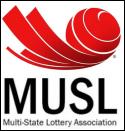High Court Dismisses Claim for Summary Judgement by the Claimant in Respect of Instant Win Game
United Kingdom (June 21, 2023) — The High Court recently dismissed a claim for summary judgement by the claimant in Parker-Grennan v Camelot UK Lotteries Ltd. Ms Parker-Grennan sought to recover £1 million from the defendant, an online betting company, in addition to the £10 sum which the defendant stated was the only amount she had won on their instant lottery game platform.
Background
On 25 August 2015, Joan Parker-Grennan bought a £5 ticket for an Instant Win game operated by Camelot, an official operator of the National Lottery. In the game, the player must choose 15 numbers (“Your numbers”) hoping one of them will match with one of the five numbers (“Winning numbers”) generated by the game. If the numbers match, they will flash white and be highlighted green, and will have an associated prize. The prizes range from £5 to a maximum of £1 million.
When Ms Parker-Grennan played the game, the number 15 matched in both the “Your numbers” and “Winning numbers” sections. The number flashed and was accompanied by a message stating the player had won £10. However, Ms Parker-Grennan noticed that the number 1 also matched in both sections, but it was not flashing green. The number 1 had an associated prize of £1 million. The Claimant took a screenshot of the page and then clicked the “Finish” button.

After taking a screenshot of the result, Ms Parker-Grennan pursued Camelot, claiming she was entitled to the £1 million prize in addition to the £10 prize. Camelot refused to pay out the money, claiming the matching number 1s were a result of a coding issue in the Java software responsible for the animations, and on a proper interpretation of the website’s terms, the interim animated display was irrelevant to the question of whether a player had won a prize.
The judgment
The claimant argued that Camelot’s online terms were invalid under the Unfair Terms in Consumer Contracts Regulations 1999 (UTCCR), and therefore could not be incorporated into the contract that governed Ms Parker-Grennan’s terms of use. The High Court dismissed Ms Parker Grennan’s claim for summary judgment on three grounds:
“£20 Million Cash Spectacular
Win up to £1 Million
£5 per play. Odds: 1 in 2.86
Source: England and Wales High Court (King’s Bench Division) Decisions
Incorporation of online terms
The court decided that Camelot’s online terms of business were properly incorporated into its contract with the claimant by a series of hyperlinks and drop-down menus from its site and accepted by Ms Parker-Grennan by way of the “click-wrap” method of box-ticking. It was held that the terms were not unusual or onerous, and were clearly drafted, therefore did not need to be brought to the attention of the claimant in any particular way.
Fairness and enforceability of the online terms
Camelot relied on certain terms to avoid liability; none of these were held to be unfair under the UTCCR (applicable because the events giving rise to the claim occurred before the coming into effect of the Consumer Rights Act 2015). The court, therefore, ruled that these terms were enforceable.
Interpretation of the online terms
The court looked at the online terms, specifically at the Game Procedures and the Instant Win Games Rules. The court determined that a win was shown by “flashing white matching numbers and a message stating what the win amount is”. Then, in order to complete the game, the player must press the “Finish” button. The court also accepted that in the Game Procedures it outlined that “The outcome of a Play in the Game is pre-determined by Camelot’s Computer System at the point of purchase.”
The court highlighted that in the Rules for Interactive Instant Win Games, it states that a “Play” will be invalid and no prize paid out if, amongst other circumstances, “The Play Number for the Play is not on Camelot’s official list of Winning Plays”. The rules also stated that Camelot may declare a Play invalid (and will not be obliged to pay any Prize) if “the outcome of a Play as displayed on the Game Play Window is inconsistent with the result of that Play as predetermined by Camelot’s Computer System”.
Finally, the court held that the Rules also made it clear that “Camelot’s decision about whether or not a Play is a Winning Play, or in relation to any other matter or dispute arising from the payment or non-payment of Prizes, will be final and binding provided that it is a reasonable decision”.
Commercial considerations
Whilst this case doesn’t set a new legal precedent, it sets a good example to other companies on the importance of careful drafting of online terms. Camelot benefitted from clear drafting of its terms and conditions in this scenario – primarily through its use of plain English, signposting through logical and meaningful headings, use of specific terms for each type of service/product used, and also its use of tick-boxing to show customer acceptance of its terms.
By: Freddie Eastwell and Yasmine Barakat
View original. England and Wales High Court (King’s Bench Division) Decisions
SOURCE: Bird & Bird LLP – Lexology.



























